Best Probiotic-Rich Fermented Foods are gaining recognition for their profound impact on our overall health and well-being. These foods, teeming with beneficial microorganisms, offer a plethora of advantages, from improved digestion and a bolstered immune system to potential reductions in inflammation and even benefits for mental health.
In this guide, we will explore the world of probiotic-rich fermented foods, shedding light on common options like yogurt, kefir, sauerkraut, kimchi, and fermented pickles. We will delve into the probiotic strains they contain and the nutritional benefits they provide.
Moreover, we will offer practical insights on how to seamlessly integrate these foods into your daily diet and discuss the possibility of crafting your own probiotic-rich creations through home fermentation.
By the end of this exploration, you’ll be equipped with the knowledge and motivation to harness the extraordinary potential of these foods, ultimately promoting a healthier gut and a happier you.
Table of Contents
ToggleHealth Benefits of Probiotic-Rich Fermented Foods
- Improved Gut Health and Digestion: Probiotic-rich fermented foods are known to promote a balanced and thriving gut microbiome. The beneficial microorganisms they contain, such as Lactobacillus and Bifidobacterium strains, help maintain a harmonious environment in the digestive system. This can lead to improved digestion, reduced symptoms of gastrointestinal discomfort, and a decreased risk of conditions like irritable bowel syndrome (IBS).
- Enhanced Immune System Function: A significant portion of our immune system resides in the gut. Probiotics in fermented foods support immune function by regulating the gut’s immune response and preventing the overgrowth of harmful bacteria. This can help protect the body against infections and illnesses, ultimately boosting the body’s defense mechanisms.
- Potential Reduction in Inflammation: Chronic inflammation is linked to numerous health issues, including heart disease, diabetes, and autoimmune disorders. Probiotic-rich foods may help mitigate inflammation by promoting a balanced gut microbiome, which plays a crucial role in modulating the body’s inflammatory responses.
- Mental Health Benefits: Emerging research suggests a strong connection between the gut and the brain, known as the gut-brain axis. Probiotic-rich fermented foods may contribute to improved mental health by influencing the gut-brain communication. Consuming these foods has been associated with reduced symptoms of anxiety, depression, and stress, though further research is ongoing in this area.
Also, Read – Pineapple Turmeric Sauerkraut Recipe
Best Probiotic-Rich Fermented Foods
Yogurt
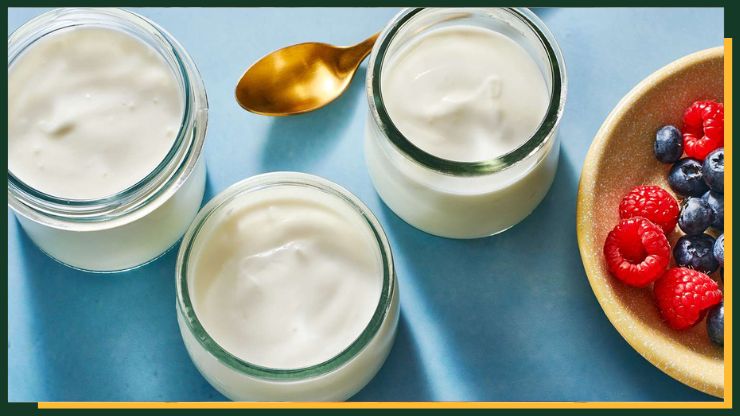
Yogurt is a probiotic-rich dairy product. It contains live and active cultures that support gut health. Greek yogurt and kefir are popular varieties. These beneficial bacteria aid digestion and may boost the immune system.
Yogurt is also a good source of protein, calcium, and essential nutrients. Enjoy it as a snack, in smoothies, or with fruit for a tasty and nutritious addition to your diet. Look for options without added sugars for a healthier choice.
Kimchi
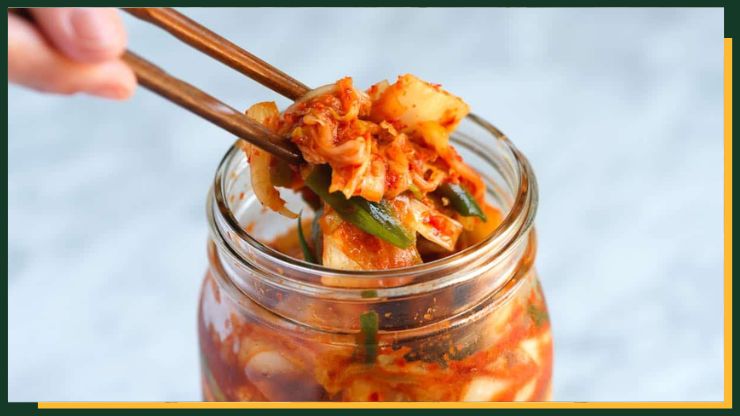
Kimchi is a spicy Korean side dish made by fermenting Napa cabbage and other vegetables with seasonings like chili, garlic, and ginger. This traditional dish is a potent source of probiotics, particularly Lactobacillus kimchii, which can benefit gut health. It’s rich in vitamins, minerals, and antioxidants, making it a nutritious addition to your diet.
The fermentation process gives kimchi its distinct tangy flavor and helps preserve it. Kimchi can be served as a side dish, added to soups, stews, or stir-fries, or used to create flavorful dishes like kimchi fried rice. Enjoy its unique taste and health benefits as part of your meals.
Sauerkraut
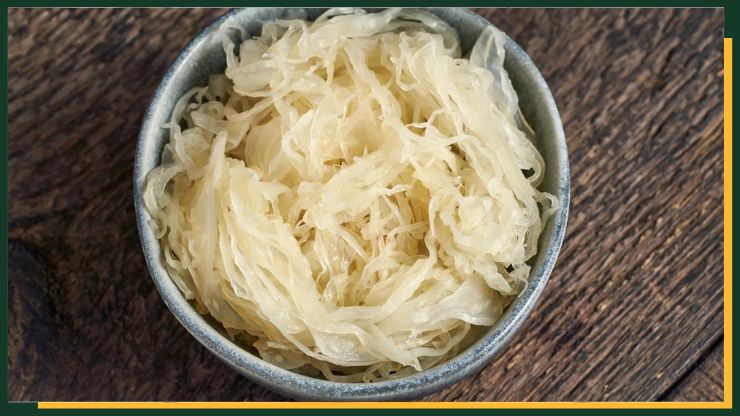
Sauerkraut is a traditional fermented food made from thinly sliced cabbage that’s been salted and left to ferment. During fermentation, lactic acid bacteria develop, turning the cabbage into a tangy, probiotic-rich condiment.
This process not only gives sauerkraut its distinctive sour flavor but also enhances its nutritional value. Sauerkraut is a good source of vitamins C and K, as well as fiber. It’s known for its potential to support gut health due to its probiotic content.
Enjoy sauerkraut as a topping for hot dogs or sandwiches, in salads, or as a flavorful side dish. Incorporating sauerkraut into your diet can add a zesty and healthy twist to your meals.
Also, Read – Guilt-Free Veggie Breakfasts
Kombucha
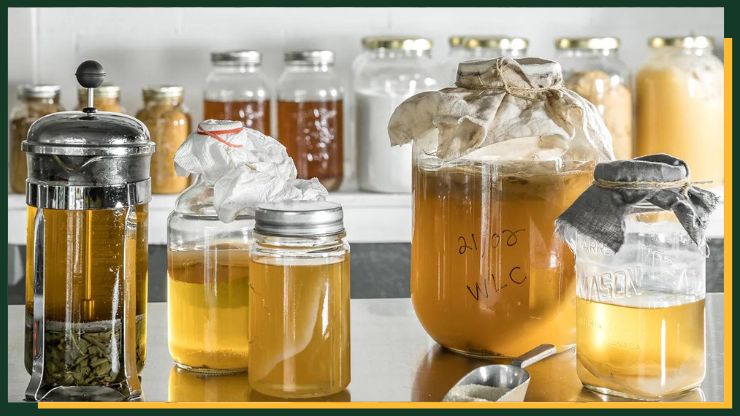
Kombucha is a popular fermented tea beverage known for its tangy, effervescent quality. It’s made by fermenting sweet tea with a symbiotic culture of bacteria and yeast (SCOBY). During fermentation, the SCOBY metabolizes the sugars, producing probiotics and organic acids.
The result is a low-alcohol, slightly fizzy drink rich in beneficial bacteria, such as acetic acid and lactic acid bacteria. Kombucha can support gut health and digestion due to these probiotics. It also contains antioxidants and may have potential health benefits, though more research is needed.
Available in various flavors, kombucha makes for a refreshing and slightly tangy beverage that appeals to those seeking a healthier alternative to sugary sodas.
Miso
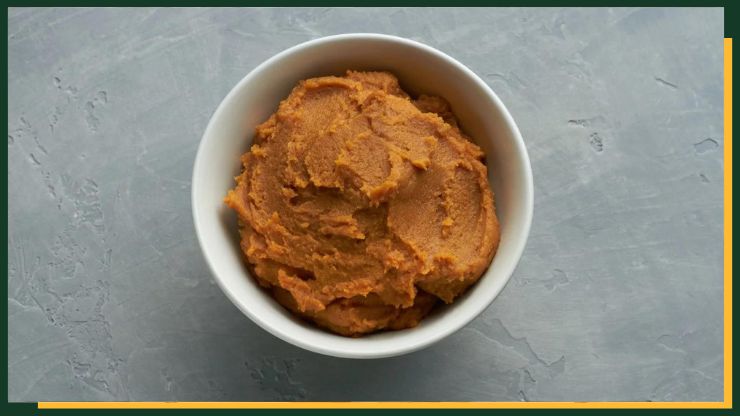
Miso is a traditional Japanese seasoning made by fermenting soybeans, barley, or rice with salt and a specific fungus called Aspergillus oryzae. The mixture is left to ferment for months or even years. This fermentation process creates a thick paste with a complex, savory flavor and a rich source of umami.
Miso is a versatile ingredient used to make soups, marinades, dressings, and sauces. It contains probiotics, particularly the bacterium Lactobacillus, which can contribute to gut health.
Additionally, miso is packed with essential nutrients like vitamins, minerals, and protein. Its distinct flavor can add depth and complexity to a wide range of dishes, making it a valuable component of Japanese cuisine and beyond.
Tempeh
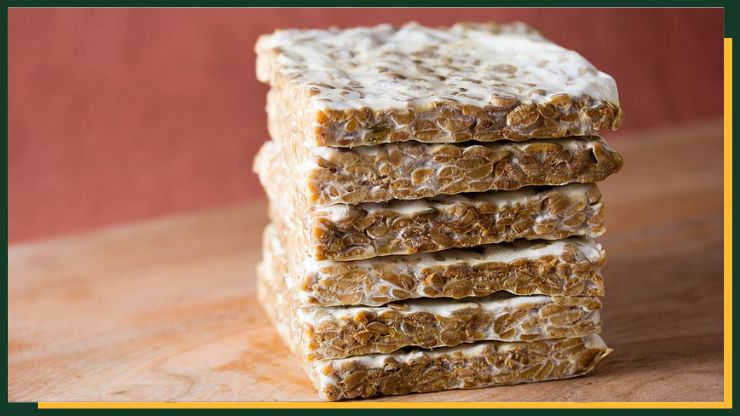
Tempeh is a plant-based protein source and a staple in many vegetarian and vegan diets. It’s made by fermenting cooked soybeans with a specific fungus called Rhizopus oligosporus. During fermentation, the soybeans bind together into a firm cake with a nutty flavor and a slightly earthy taste.
This process not only enhances its texture and taste but also increases its nutritional value. Tempeh is rich in protein, fiber, vitamins, and minerals. As a fermented food, it contains probiotics, which can promote gut health.
It’s a versatile ingredient and can be used in various savory dishes, including stir-fries, sandwiches, and salads, making it a nutritious and delicious meat substitute.
Also, Read – Apple Spice Sauerkraut Recipe
Don't just scroll, subscribe!
BuzzTrail's unique web-stories are the cure for boredom you've been waiting for.
Pickles

Pickles are cucumbers that have been soaked in a brine of water, salt, and vinegar, then left to ferment. During fermentation, beneficial lactic acid bacteria develop, giving pickles their distinct tangy and sour taste.
This process not only enhances their flavor but also makes them probiotic-rich, potentially benefiting gut health. Pickles are low in calories and a good source of vitamins and minerals, particularly vitamin K and electrolytes like sodium.
They are often enjoyed as a crunchy and flavorful snack or as a condiment to complement sandwiches and burgers. While commercial pickles are common, traditional homemade pickles are also popular, allowing for variation in flavors and ingredients.
Natto
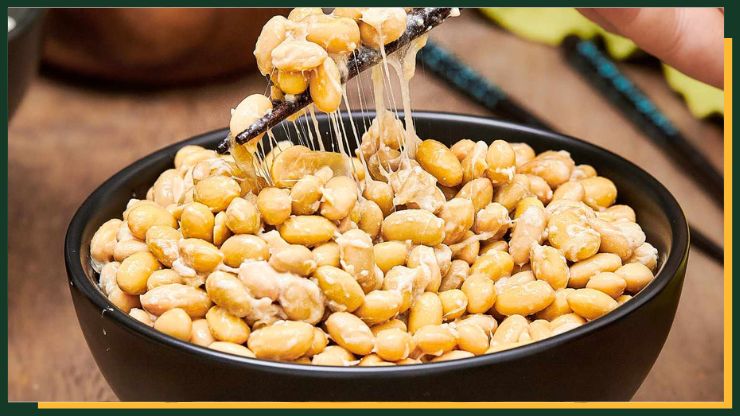
Natto is a traditional Japanese dish made by fermenting soybeans with Bacillus subtilis bacteria. The fermentation process imparts a distinctive slimy texture, strong aroma, and pungent flavor. Natto is a rich source of plant-based protein and is highly regarded for its health benefits.
It’s abundant in nutrients like vitamin K2, which is essential for bone and cardiovascular health. Additionally, natto contains probiotics that can support gut health. Due to its unique taste and texture, it’s often served with soy sauce, mustard, and rice in Japanese cuisine.
Natto enthusiasts appreciate its potential health advantages and bold, acquired taste, while others may find it an acquired culinary experience.
Fermented cheeses
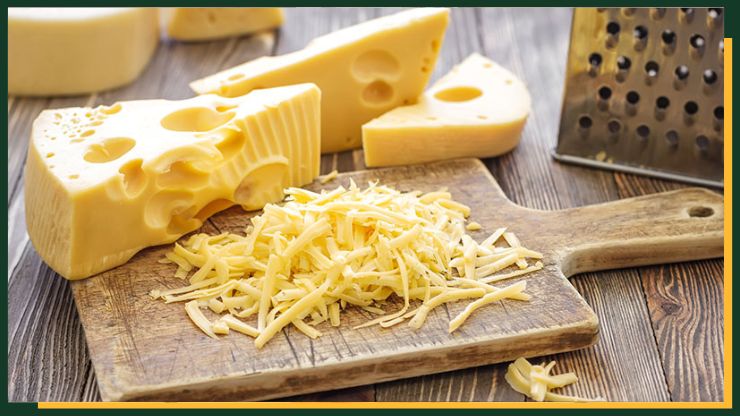
Fermented cheeses are a group of cheeses that undergo a controlled fermentation process, resulting in unique flavors and textures. During fermentation, beneficial bacteria and enzymes transform milk components, such as lactose and proteins, into various compounds.
These cheeses include varieties like cheddar, Gouda, Swiss, and Roquefort, which contain live probiotic bacteria, such as Lactobacillus and Bifidobacterium strains, that can potentially support gut health.
Cheddar, Gouda, and Swiss cheeses are known for their smooth textures and nutty, sweet or savory flavors, depending on the aging process. On the other hand, Roquefort, a blue cheese, features blue-green mold that grows throughout the cheese, imparting a sharp and tangy flavor.
Adding fermented cheeses to your diet not only provides a delicious culinary experience but also introduces potentially beneficial probiotics.
Traditional buttermilk
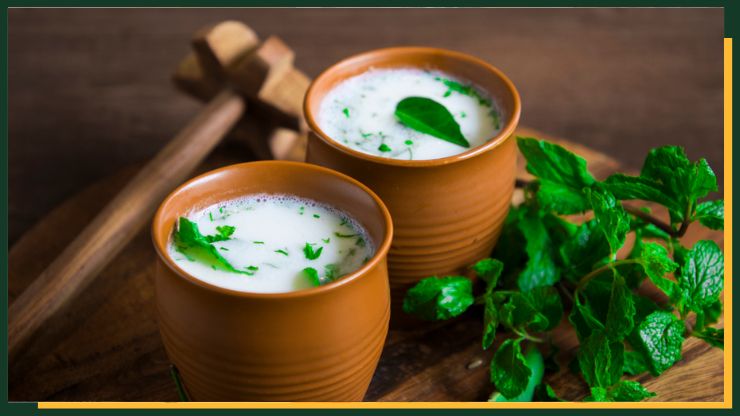
Traditional buttermilk is the liquid that remains after churning butter from cream. It’s a byproduct of the butter-making process and differs from cultured buttermilk. Traditional buttermilk is naturally fermented by the lactic acid bacteria naturally present in milk and cream.
As it ferments, it acquires a tangy flavor and a slightly thicker consistency. This natural fermentation gives it probiotic properties and makes it a good source of beneficial bacteria for gut health. In some cultures, it’s enjoyed as a refreshing beverage, while in others, it’s used in baking to provide leavening and a subtle tang to recipes.
Traditional buttermilk is a nutritious and probiotic-rich addition to your diet, but be sure it’s made through natural fermentation, not through additives or culturing.
Fermented vegetables
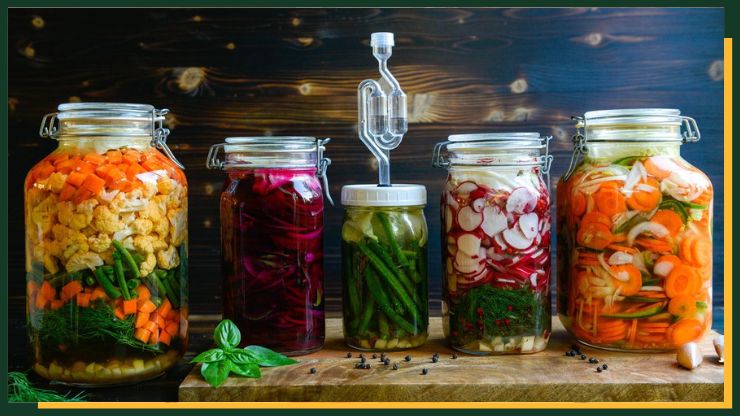
Fermented vegetables are a category of food that involves the natural fermentation of vegetables, such as cabbage, cucumbers, and carrots. During the fermentation process, beneficial bacteria, usually lactic acid bacteria, transform the sugars and starches in the vegetables into lactic acid.
This process preserves the vegetables and imparts a tangy, sour flavor. Fermented vegetables are rich in probiotics, which promote gut health by maintaining a balanced microbiome. Additionally, they retain their vitamins, minerals, and fiber, making them a nutritious addition to your diet.
Sauerkraut, kimchi, and traditional pickles are popular examples of fermented vegetables. Incorporating them into your meals can add depth, flavor, and potential health benefits to your diet.
Kvass
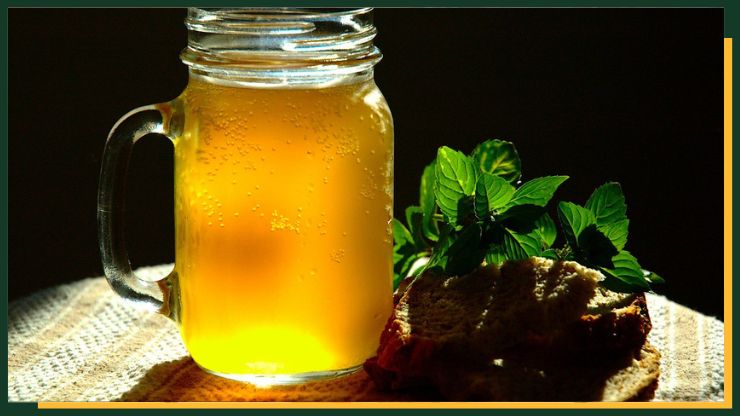
Kvass is a traditional Eastern European fermented beverage that’s often made from bread, typically rye bread. To prepare kvass, chunks of bread are combined with water, sugar, and sometimes flavorings like fruits or herbs.
Over several days, the mixture ferments, thanks to naturally occurring wild yeasts and lactic acid bacteria. This process results in a mildly alcoholic, slightly fizzy, and tangy drink.
Kvass is a refreshing and slightly sour beverage enjoyed in various Slavic countries. It contains a modest alcohol content due to fermentation but is generally low enough that it’s considered non-alcoholic.
Kvass is also rich in B vitamins and may contain probiotics from the fermentation process. It’s a unique and traditional thirst-quencher, commonly consumed in hot weather or as a daily drink.
Conclusion
In conclusion, probiotic-rich fermented foods are a delicious and natural way to promote a healthy gut, bolster the immune system, potentially reduce inflammation, and even support mental well-being. Their diverse array of health benefits underscores their importance in our diets.
By embracing these foods, you can take a proactive step toward better health and vitality. So, go ahead and savor the flavors of yogurt, kefir, sauerkraut, kimchi, and more, as they contribute to a happier, healthier you.
FAQs
What are probiotic-rich fermented foods?
What are probiotic-rich fermented foods?
Probiotic-rich fermented foods are foods that have undergone a fermentation process, during which beneficial bacteria, or probiotics, are introduced or naturally occur. These foods contain live cultures of these beneficial microorganisms.
What are the most common probiotic-rich fermented foods?
What are the most common probiotic-rich fermented foods?
Common probiotic-rich fermented foods include yogurt, kefir, sauerkraut, kimchi, and fermented pickles. These foods are known for their high probiotic content.
What are probiotics, and why are they important?
What are probiotics, and why are they important?
Probiotics are live microorganisms, typically beneficial bacteria, that provide various health benefits when consumed. They play a crucial role in maintaining a healthy gut microbiome, which has a profound impact on overall health, including digestion, immune function, and more.

